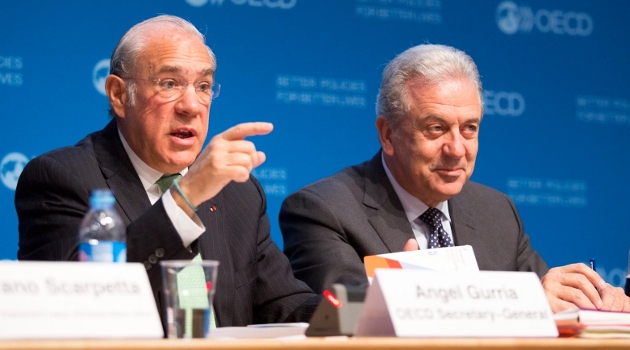FIFA officials were hit with indictments earlier this year stemming from allegations of corruption and bribery. Now, Panama is rightly outraged after what has widely been acknowledged as shoddy officiating cost their team a match against Mexico in last month’s Gold Cup.
Despite this, Roberto Brenes makes a compelling case in Panama’s La Prensa that the OECD is even less fair than FIFA (translation via Google, please excuse any awkward phrasing or imperfections):
Panamanians we stand with indignation and solidarity, to what we consider the abuses and violations of the FIFA football … against our national team.
…But what Panamanians should know is that similar or worse abuses perpetrated against our financial and tax system by an equally illegitimate and dishonest organization, the Organization for Economic Cooperation and Development (OECD, for its acronym in English) which does not respect the rules of fair play.
CF&P has long opposed the OECD and its attacks on low-tax jurisdictions, as well as its hypocritical penchant for ignoring similar policies designed to attract foreign investment among its member states. Brenes not only highlights this hypocrisy but also rightly points out that the OECD club for rich nations is simply seeking to enable higher taxes:
The system of Panama, a country of territorial tax system that only taxes that are generated internally both for Panamanians and foreigners is seen by the OECD as a harmful, because it allows citizens from other jurisdictions to avoid huge tax burdens that OECD countries recharge its citizens. These loads are mostly intended to hold leafy bureaucracies which ironically does not help to generate growth and development, quite the contrary.
…But the most irritating and dangerous action of the OECD is that they are not applied equally. In Panama, for example, it has forced him to remove his system of bearer shares, with the excuse that it is a source of tax evasion. However, for countries like Liberia, a subject of the United States which is an important member of the OECD, the organization turns a blind eye to the continued use of bearer shares for their shipping registry.
He finishes with an important point: as outrageous as it can be to be cheated by those supposed to uphold the rules in a sport, the consequences are much more significant when that same brand of favoritism is applied to the global economy.

